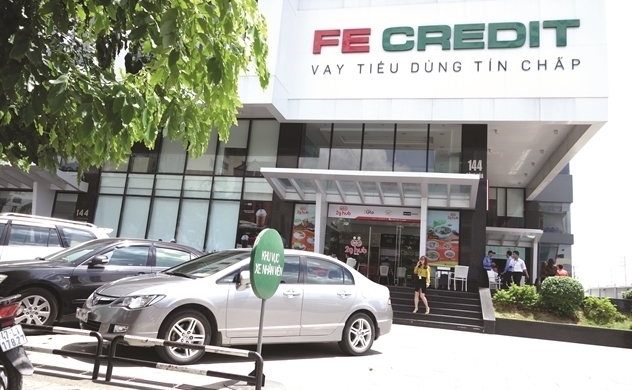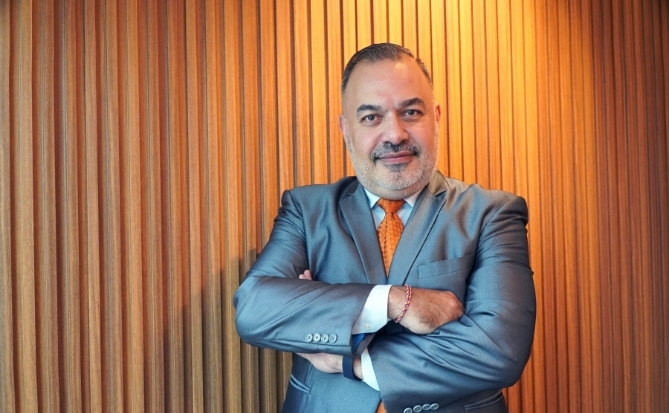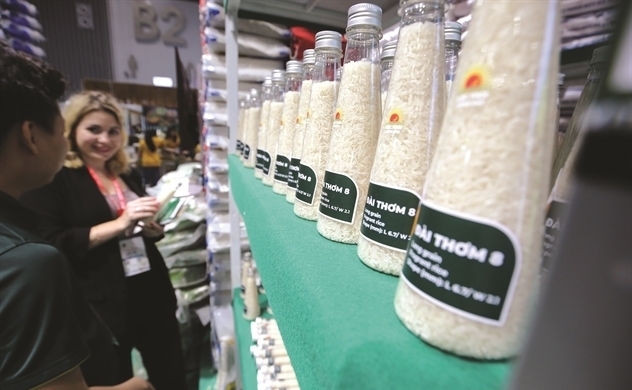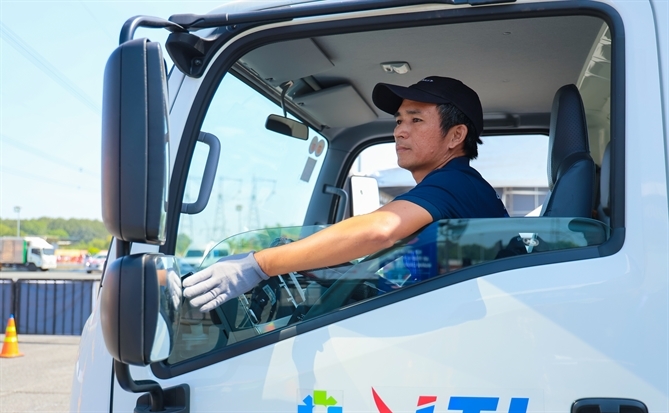Consumer finance sector expected to face major changes

The consumer finance lending model targets the "subprime" customer segment (not qualified to access capital at banks). Photo: Quy Hoa
Economic difficulties are causing a sharp decrease in borrowers' income and increasing bad debt, leading 62% of consumers to cut unnecessary spending, particularly in luxury goods, travel, and electronic devices.
Sudden reversal
Financial companies have experienced a sharp decline in business results in the first six months of 2023, with VietCredit reporting a loss of VND 73.6 billion in the first half of 2023, compared to a pre-tax profit of VND 54.3 billion in the same period last year. FE Credit also reported an after-tax loss of VND 2,996 billion, despite a profit of VND 144 billion in the same period last year.
The consumer finance lending model targets the "subprime" customer segment, which is not qualified to access capital at banks. However, financial companies have had booming business activities with the support of banks, with consumer loan products having increasingly higher value.
The market has 16 financial companies approved by the State Bank and licensed, with outstanding debt reaching over VND 220,000 billion, accounting for 1.87% of total outstanding debt of the entire economy and 8.5% of outstanding consumer loans of the entire system (as of the end of 2022).
The economic downturn has led to a rapid increase in bad debt, making it difficult for "creditors" to manage. According to data from the Vietnam Banking Association, by the end of 2022, bad debt of financial companies increased by 23.09% compared to the end of the previous year and is likely to increase in the near future.
Home Credit Vietnam reported a profit after tax of less than half compared to the same period last year, reaching more than VND 211 billion. HD Saison's total operating income increased by 8.2% over the same period last year, but pre-tax profit only reached VND 314 billion, half of that in the first six months of 2022.
Capital costs due to increasing interest rates also eroded the profits of consumer finance companies, with HD Saison's profit margin (NIM) decreasing from 30.2% to 29.7% when capital costs increased from 6% to 7.9%.
Businesses operating online lending applications such as online ATM, Doctor Dong, MoneyCat, and Robocash have shrunk or completely closed in the past six months.
The situation is very difficult, as the company only maintains old loans, disbursement decreases by half compared to the same period last year, and bad debt increases.
Open a new race
Banks are experiencing "excess cash," allowing consumer loans to boom with low interest rates and easier lending conditions. Market surveys show that customers can borrow from tens of millions to hundreds of millions of dong, with interest rates at some commercial banks being only 50% compared to last year.
Financial companies have adjusted their business strategies, investing and combining with ecosystem partners to cater to this new situation.
KBank, the third-largest asset bank in Thailand, is negotiating to acquire Home Credit Vietnam Finance Company, aiming to increase the number of application users by 2.7 times by the end of 2023. More open regulations on electronic lending activities are enabling banks to deploy technology into the lending process.
 |
| At this time, banks are in a state of "excess cash", so consumer loans have the opportunity to explode with low interest rates and easier lending conditions. Photo: Quy Hoa |
UOB Bank has acquired Citigroup's consumer banking business in Vietnam, including its unsecured lending portfolio, collateralized lending, wealth management, and retail banking businesses. The transfer deal also includes the transfer of nearly 600 employees from Citigroup working in the consumer finance segment in Vietnam.
This move demonstrates UOB's ambition in the unsecured lending segment, including credit cards and personal loans, while adding mortgage loans and car loans in the Vietnamese market.
Multinational financial corporations from the Asian region are promoting mergers and acquisitions, contributing capital, and buying shares in domestic commercial banks to promote their operations.
In this competition, investing in digitalization is crucial for large financial companies to compete and expand their market share. Many customers with consumer finance needs have switched to using non-cash application platforms and modern loan technologies.
Consumer finance companies are focusing on developing completely digital sales channels in the context of specific regulations and instructions from the State Bank allowing credit institutions to deploy loans electronically.
The project to develop the application of population data, identification, and electronic authentication for national digital transformation in the period 2022–2025, with a vision to 2030, is a favorable condition for credit institutions to consider and approve.
With the explosion of technology, new lending models will reshape the market as fintechs improve access to savings accounts, personal loans, other forms of credit, and insurance products. Dr. Vo Tri Thanh, former Deputy Director of the Central Institute for Economic Research (CIEM), emphasizes the need to gradually improve the legal framework to make lending activities transparent and limit consequences.

 TIẾNG VIỆT
TIẾNG VIỆT 










_131447820.png)







